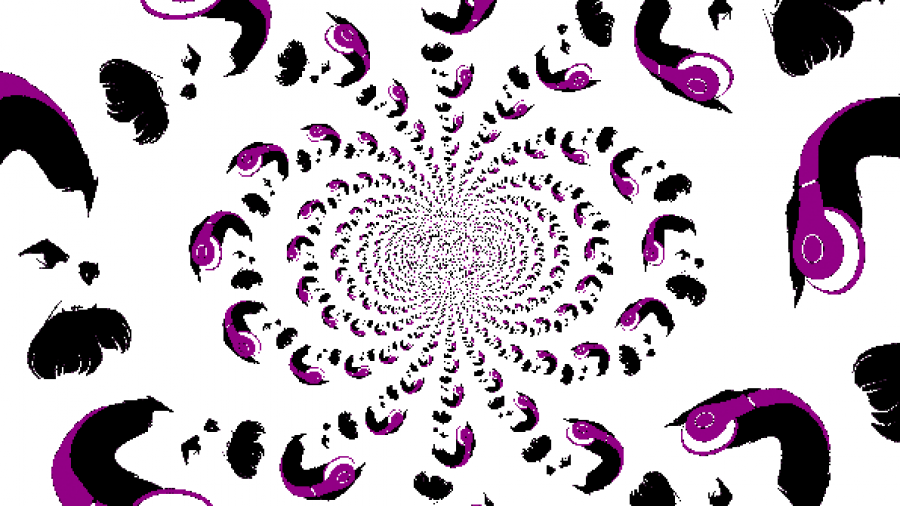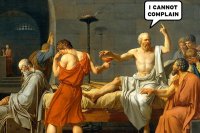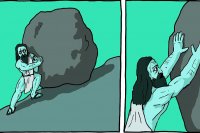In Nietzsche’s most popular book, Thus Spoke Zarathustra, he described what would become one of his most memorable theories—that of the Übermensch.
In English versions of the work of Nietzsche, “Übermensch” is translated as “Superman” or “Overman”. The term “Superman” has adopted many connotations as a result of the comic book hero in popular culture, so for most scholars today, “Overman” is the more suitable term.
“Overman” refers to Nietzsche’s conception of a person who has literally overcome himself/herself and transcended all external influence. In essence, an Overman is an extraordinary person who has superseded the human condition and reached a liberated state of free play and creativity.
This state can be seen as the state of the pure and also universal individual—an utterly differentiated person unencumbered by the influence of society and other people, who is in harmony with the deep-down, creative, amoral (interestingly, Nietzsche’s feeling that existence is, at root, amoral is shared by the original incarnations of Taoism and Zen Buddhism) spirit of existence. This person creates their own values and dances through the game of life to the tune of their own soul-stuff.
In Thus Spoke Zarathustra, Nietzsche models three “spiritual” metamorphoses that must be undergone for the individual to reach the state of Overman. These transformations are rather prescriptive in nature, and thus can be seen as a sort of guide to becoming Overman, or liberating one’s spirit.
It should be noted, however, that Nietzsche also felt that becoming an Overman would be incredibly f***ing difficult. A task of the century fit for only the most exceptional people in his famous Master-Slave morality formulation. Nonetheless, I’ve found his Overman metamorphoses to be both useful and tantalizing concepts. Let’s examine them more closely:
Metamorphosis #1: The Camel
The first metamorphosis described by Nietzsche is that of the camel. Of this, he writes:
“What is difficult? asks the spirit that would bear much, and kneels down like a camel wanting to be well loaded. What is most difficult, O heroes, asks the spirit that would bear much, that I may take it upon myself and exult in my strength?”
After this passage, Nietzsche goes on to list several items that may be considered among the most difficult or trying of life’s possible experiences. He indicates that the camel must invite these burdens. For example, he writes, “Or is it this: loving those who despise us and offering a hand to the ghost that would frighten us?”
Nietzsche suggests that before one can become Overman, one must first bear a great many burdens. One must battle with fear, love, truth, death, confusion, thirst for knowledge, and all of the other aspects of human existence. The camel embraces these challenges in the name of duty and nobility. Put another way, the camel does not attempt to evade life or distract itself from it. It countenances life directly and navigates its difficulties, but it does so more so out of a sense of obligation to its society or moral doctrine than anything else. In doing so, the camel is humbled and strengthened. Only through suffering these challenges does the camel gain the strength and resilience necessary to attain the next spiritual metamorphosis.
Metamorphosis #2: The Lion
Nietzsche goes on to describe how the camel ultimately enters “the loneliest desert” before becoming a lion. The lonely desert metaphor can be interpreted as follows: The camel has sought out and invited the struggles that life has to offer. In doing so, it has become alienated to a certain extent. It has become different from others and from the society that produced it; it finds itself questioning existence, both its worth and the value of its pursuits.
The desert can be seen as a place of existential crisis, where the camel ponders whether or not any universal laws or virtues exist to guide it and give it purpose. For Nietzsche, such universal virtues and absolute purpose do not exist. The camel is forced to confront this possibility, and thus, the camel must become a lion. Nietzsche writes:
“Here the spirit becomes a lion who would conquer his freedom and be master in his own desert. Here he seeks out his last master: he wants to fight him and his last god; for ultimate victory he wants to fight with the great dragon. Who is the great dragon whom the spirit will no longer call lord and god? “Thou shalt” is the name of the great dragon. But the spirit of the lion says, “I will.” “Thou shalt” lies in his way, sparkling like gold, an animal covered with scales; and on every scale shines a golden “thou shalt.” My brothers, why is there a need in the spirit for the lion? Why is not the beast of burden, which renounces and is reverent, enough? To create new values—that even the lion cannot do; but the creation of freedom for oneself for new creation—that is within the power of the lion. The creation of freedom for oneself and a sacred “No” even to duty—for that, my brothers, the lion is needed. To assume the right to new values—that is the most terrifying assumption for a reverent spirit that would bear much.”
When the camel discovers that universal truth and virtue may be non-existent, it has two choices: it can reject life as meaningless and probably commit suicide, or it can claim its own freedom and create its own meaning and virtue. To become Overman, the camel must obviously do the latter; it must ascend. To do this, the camel must destroy the largest barrier to true freedom: the duty and virtue imposed by tradition and society. This is what Nietzsche’s great dragon symbolizes. It is everyone and everything that would tell one how to live one’s life. The camel had been a slave to the dragon, inviting life’s challenges but always living in accordance with the values imposed upon it from without.
The camel must reject this dragon of tradition and commands, but it cannot in its current, duty-loving form. Thus, it must become a lion. Its trials have allowed it to attain sufficient strength. The lion symbolizes courage, tenacity, disillusionment, and even rage. Only in this state is the spirit able to deliver the “sacred ‘No.’” The “sacred ‘No’” represents the utter rejection of external control and all traditional values. Everything imposed by other individuals, society, churches, governments, families, and all forms of propaganda must be denied in a colossal, IDGAF-esque roar.
That is not to say that the lion must ultimately believe that all virtues and values imposed by such entities are malignant. Indeed, they could be useful and worthy. However, their rejection is necessary because they come from an external authority and are masquerading as something absolute. The Overman rejects all absolutes and must will his world entirely from within; thus, he must create his own values on his own terms.
Metamorphosis #3: The Child
After the lion has delivered the “sacred ‘No,'” the spirit must yet make one more transformation to become Overman. The spirit must become a child. Nietzsche writes:
“But say, my brothers, what can the child do that even the lion could not do? Why must the preying lion still become a child? The child is innocence and forgetting, a new beginning, a game, a self-propelled wheel, a first movement, a sacred “Yes.” For the game of creation, my brothers, a sacred “Yes” is needed: the spirit now wills his own will, and he who had been lost to the world now conquers his own world.”
So, Nietzsche holds that the lion must again transform in order to forget. The spirit has undergone much duress and turmoil in its transformations, but it must cleanse its mind of the past. In delivering a “sacred “Yes””, the child affirms the day, affirms uncertainty, and affirms the flux of life. The child becomes a self-propelled wheel, in harmony with its fate and with the currents of existence that run through it. The child elects to roll with life, dance and play with it, to be fully and unabashedly what it is. (One of Nietzsche’s favorite mantras, from Pindar, was “Become what you are.”)
Ultimately, for Nietzsche, pure creation arises from this state of play. When one can achieve a child-like state—a self immersed in the instant, pulsing with wonder and playfulness, in-tune with its own deep-down truth—then one can abide his truest will, create his own values, and thus create his own reality. In undergoing this final metamorphosis, the spirit overcomes itself, conquers its world, and reaches the state of Overman. The spirit achieves liberation.
Objections
There are certainly compelling objections to Nietzsche’s Overman theory and his nihilistic views about morality. If universally “good” values do not exist and one is free to create one’s own, what is there to keep one from determining that heinous acts—murder, rape, torture, etc.—are justified? Nietzsche was well-aware of this possibility and even predicted that his ideas would be used as justification for various atrocities. He was right: some speculate that his ideas were influential in Nazi ideology, and in 1924 two wealthy University of Chicago students who had been influenced by Nietzsche’s Overman theory murdered a 14-year-old boy.
The important thing to note here is that Nietzsche was, like most philosophers, a voracious truth-seeker. The objection in the preceding paragraph arises from a sort of utilitarian, consequentialist reading of Nietzsche (i.e. a reading from the perspective that we should act in such a way that our actions will result in the greatest good for the greatest number of people). But, for Nietzsche, this objection would have been yet another example of mankind attempting to impose arbitrary moral standards onto a universe in which none objectively exist. Nietzsche was less interested in the imaginary moral constructs mankind might use to reduce suffering and more interested in discovering the truth of existence.
While this might strike you as a reason to think Nietzsche was a scoundrel, I credit the man for not compromising his ideals simply because they were unpopular. Plus he went insane trying to save a horse from being beaten and spent the last decade of his life in a rather wretched condition, so maybe we ought to give him a break and acknowledge that he did, at least, possess a fair share of compassion. He was an audacious, unflinching thinker, and that’s why he earned a permanent place in the logo of Refine The Mind. That’s not to say that I agree with all of his views; I agree with his doggedness. I don’t think the fact that the Overman could end up a hideous person requires us to dismiss the theory.
Furthermore, we have little reason to believe that the hypothetical Overman would not will compassionate values, and in fact, there is a certain argument for thinking it’s quite likely that he or she would. It’s possible to see Nietzsche’s “child”—a playful being in-touch with its deep-down nature—as uncannily similar to a realized Taoist or Zen Buddhist. There is a Zen saying—“Nothing is left to you at this moment but to have a good laugh.”—that is meant to refer to the moment after one has attained satori (or, “enlightenment”) that would seem equally appropriate if applied to the moment one has attained “child” status. In Zen and Taoism, as in Nietzsche’s work, when one has seen through all baggage imposed from without, one is able to affirm existence as a kind of game and to blossom colorfully with the great unfolding of things, organic as a daffodil, individuated but also one with the whole roadshow. In the Zen and Taoist traditions, when one reaches this state of liberation, one naturally discovers compassion for all sentient beings—not as a moral law, but as a natural outgrowth of the insight that all beings are “cut from the same cloth”, as it were. I like to think that the true Overman would share this realization, but Nietzsche doesn’t explicitly say so. If this is a distortion of Nietzsche, call it my Overman 2.0.
—
Even if we dismiss Nietzsche’s theory of the Overman as an unattainable idealization, we can still glean from it a few significant ideas: that undergoing a fair share of pain, struggle, disillusionment, and trepidation may well be a necessary prelude to a more liberated state; that the deepest sort of freedom to which we can aspire involves a kind of transcendence of external influences; that becoming a pure individual in this world requires tremendous courage and tenacity; and that our ultimate aim should be to affirm life and to dance with it, to play and create as children.
“You have your way. I have my way. As for the right way, the correct way, and the only way, it does not exist.”
Friedrich Nietzsche
If this was ubercool, subscribe.
This post is an updated version of an article of mine that originally appeared on High Existence. I wanted to share it here because the Overman theory remains a favorite of mine and because I recently made a rap song about Nietzsche, the Overman, and a bunch of other thinkers/writers. Listen:
[soundcloud url=”https://api.soundcloud.com/tracks/160758087″ params=”auto_play=false&hide_related=false&show_comments=true&show_user=true&show_reposts=false&visual=true” width=”100%” height=”450″ iframe=”true” /]
About Jordan Bates
Jordan Bates is a Lover of God, healer, mentor of leaders, writer, and music maker. The best way to keep up with his work is to join nearly 7,000 people who read his Substack newsletter.





Well done, sir. This is my favorite explanation and you did a very good job. I read TSZ years ago and I got very little out of the actual text. Thank you for existing =)
Dude, you’re welcome. Glad you liked my explanation. Cheers.
Thanks for the article and I loved the image of Nietzsche fractal!
Haha, word. Glad you liked it :3
Amazing!
thanks, nate 🙂
An excellent piece Jordan, thanks.
you’re very welcome!
Thank you for this. I have gone through these stages (and didn’t even know it was a thing, ha) and sometimes find myself back to camel until I remember to become (once again) the observer and enjoy the show. My motto (yes, I have a motto) is “Be that which you are” so I laughed when I read this too. love.
thanks so much, jo. and thanks for sharing.
I think your explanation of the ubermensch might possibly be one of the best I have ever seen. And, I think I have learned more here than I have seeing most other texts.
thank you so much.
Thank you so much for this piece. I’m writing an essay for school about Crime and Punishment and this theory and this helped me out a lot!
Ubermensch is NOT Over -man: [STOP STICKING A PENIS ON EVERYTHING]. Uber means Above all and mensch is HUMAN BEING. It is SuperHUMAN. Stop sticking a penis on everything.
Is that all you took away from this? Geez.
Man means mankind. Stop projecting and being offended by everything.
That song is actually quiet good.
Wow. Blown away.